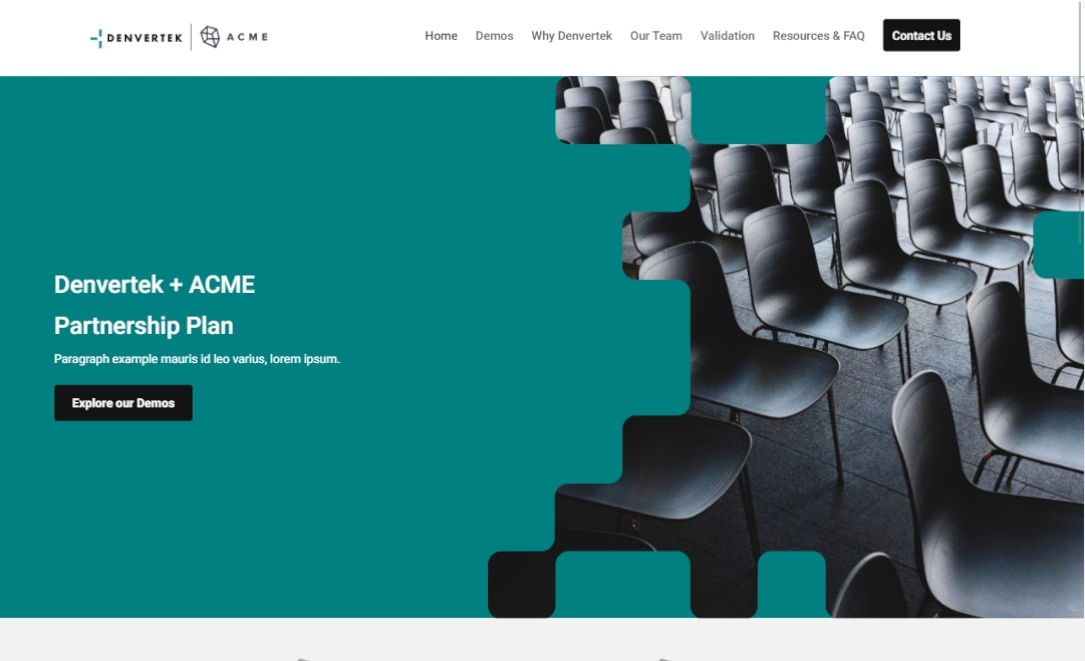Streamlining your sales and marketing processes is just one of the many challenges enterprises face. It’s a daunting task that has many moving parts, and with so much constantly in flux, supporting your workflow with the right tools can make all the difference.
While there may not be a catch-all for every part of your sales process, investing in a small selection of robust tools can elevate your operations.
What makes great sales software?
When it comes to investing in the right tools for your sales team, there are a few things you should consider to ensure you see a return on your investment.
Sales forecasting features
Sales forecasting can be an extremely useful tool to help sales and marketing teams strategize. Like a weather forecast, sales forecasts make smart predictions about how much revenue your team anticipates pulling in within a certain time frame.
Some tools are more accurate than others, and it usually boils down to how exactly the tool generates the number it’s reporting. Today’s software leverage powerful tools like machine learning and artificial intelligence to help gather and make sense of the most meaningful data.
Sales forecasting doesn’t just help sales and marketing, though. It’s also an important tool for production and other operations. It helps your organization make smart decisions about supply and demand so that you can properly stock products, create availability for your customers and staff, and preemptively consider bottlenecks before they happen.
If your business is hoping to scale up, sales forecasting can help you identify where and how to allocate resources so you are prepared to expand your market.
Marketing and sales automation
Closing on a sale is, obviously, very important. Like most good things, it doesn’t come easy and it’s likely that at the end of a sales call your team will rehash all of the nurturing and follow-up it took to get there. Nurturing leads is hard work.
Luckily, marketing and sales automation can help bear some of the brunts of this long but necessary process.
Marketing and sales automation takes all of your communication efforts and consolidates them into an automated schedule or platform. It can handle things like email follow-up and sharing collateral. While it may seem like a drop in the bucket, it’s reported that automation can help grow conversion rates by as much as 30%.
This feature can help your team free up time spent on personalized emails so they can keep tackling high-level tasks that need to be addressed.
Reports and analytics tools
When it comes to giving your sales and marketing team a robust toolkit to work with, reporting and analytics should be a feature you prioritize in any of the services you use.
The gift of modern technology is the ability to collect and make sense of data. Collecting information about leads and marketing opportunities are a part of being good at the sales game, but three key metrics are a core part of any sales process: activity, conversion, and average deal size. Together these metrics help predict revenue, and improving one or more of these factors can help your team succeed.
Reporting and analytics not only help you track these metrics accurately, but it increases visibility about where processes can be improved.
Take conversion rates, for example.
You may notice that your team has high levels of engagement with potential leads in the form of meeting time, online engagement, or communication efforts. However, conversion rates are still low.
A tool with rich analytics can help you win more business by telling you which of your strategies gain the most traction, which is ignored, or exposing where in your campaign’s pipeline you see your market taper off.
It’s the perfect way to take the guesswork out of lead nurturing, follow-up, and resource allocation.
Strong customer support
With so many tools on your belt, taking advantage of new features to their fullest can feel overwhelming or impossible.
Finding solutions that have dedicated support teams is an important part of ensuring that you see a full return on your investment. Plus, when things take a turn for the worst, you should know that someone is there to help when you need it.
A hotline may have cut it a decade ago, but long wait times and helpful robots don’t have a place in anyone’s busy work schedule. So, look for a service that has live support, robust libraries of tutorials, and video guides. For your simple questions, you can help yourself, while for more complicated questions, you’ll have someone to talk to.
Best sales software for your enterprise
Salesforce
Salesforce is a smart choice for businesses looking to scale up. It’s easily customized and integrates effortlessly with other apps, making it the perfect CRM to grow alongside your business.
Salesforce makes it easy to gain insight into customer management with advanced account and contact management. Plus, it’s cloud-based, so you can access it from anywhere. It’s an intuitive tool that makes automating processes like email alerts and task management simple. If you ever find yourself having trouble navigating the CRM, though, Salesforce offers 24/7 customer support.
There’s a reason so many businesses have used the Salesforce suite for their businesses. It offers everything you need to grow your business. While pricey, you should see a positive ROI in no time.
HubSpot
HubSpot’s CRM solution is a solid choice for businesses of all sizes and across all industries. It can help businesses monitor inbound and outbound leads with advanced features like real-time notifications. Its CRM is completely free, making it a budget-friendly solution for businesses.
In addition to all of the standard bells and whistles that most CRMs offer, HubSpot also features personalized email sequences and smart send times, though some of these extras come at an additional subscription fee.
While other CRMs offer analytic tools with their paid plans, HubSpot CRM requires upgrading to receive these services. But, again, the CRM itself is free. If you’re looking for an end-to-end solution, HubSpot has a host of other tools that you can tack on to the CRM including its Marketing Hub, Sales Hub, and Service Hub.
Zoho
Zoho has tons of tools and features for businesses at an even more budget-friendly cost than Hubspot. At its base, it’s a CRM that offers much the same as Hubspot. However, it has a ton of integrations with its other apps and third-party sources.
Like similar tools, Zoho CRM focuses on automating the sales process with features for lead conversion, pipeline management, and sales reporting. The CRM makes it easy to keep track of data on a granular and macro level, offering key insights into where bottlenecks and opportunities are hiding.
Because of how segmented Zoho’s services are, gaining access to the features you are looking for can be a piecemeal process, especially as most services are sold in bundles. On the other hand, this also allows businesses to invest in additional features like social media and customer service management.
Monday.com
Supporting your sales staff will involve more than just a CRM. When it comes to helping staff stay organized and manage projects, the right tool can make all the difference in collaborative spaces.
Monday helps organizations increase visibility over their workflows and project processes. It features customizable spreadsheets and templates that allow teams to assign tasks, monitor task activity, and determine task prioritization. The easy-to-use software has highly visual features so teams can organize information in a way that is most intuitive to their process. This includes map view boards that include physical locations and timelines.
Plus, the app features a chat and comment feature that makes it easy to keep everyone on the same page. Best of all, Monday easily integrates with other workflow tools like Slack, Teams, and Dropbox.
Monday advertises itself as a CRM tool, but the nature of the app makes it a rudimentary tool that largely handles pipeline management, so you may need additional tools to support lead capture and marketing processes if that is what you are looking for.
Zoomforth
Managing communication and marketing material is a challenge for businesses of any size, but especially for enterprise-level businesses. Luckily, services like Zoomforth can help simplify the process.
The microsite platform makes creating, sharing, and keeping track of communication efforts a seamless process. With intuitive drag-and-drop design tools, you can easily create digital collateral for any project. Whether you’re looking to elevate sales proposals, create engaging onboarding materials, or develop easy-to-use report templates, Zoomforth has you covered.
The user-friendly interface is not only a content creation dream, but it also features advanced analytics and security tools. Single sign-on, email approval, and password restrictions ensure that your microsite goes exactly where it needs to. Once your site is viewed, you can easily track what users are engaging with and for how long. It makes lead nurturing easy and can save your sales team loads of time when it comes to fine-tuning their approach.
Start rolling out microsites for any purpose with Zoomforth
For so long, enterprise communications have been stale, reserved for emails and PDFs. On the other hand, customer communication has skyrocketed with new technology and strategies to reach audiences. Why not use a microsite to enhance both?
Zoomforth makes it easy to elevate your internal and external communication strategies with beautifully created, secure, and fully trackable microsites. This is where innovative technology and streamlined processes meet.
Ready to get started? Sign up for a risk-free demo.



